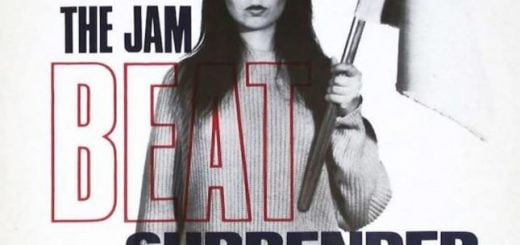The Jam’s “Town Called Malice” Lyrics Meaning
The Jam’s frontman, Paul Weller, is from Woking, England. This is a place which he himself has described as a “suburban town”. And the “town called Malice” is actually a reference to Woking, with the titular phrase being a play on words of the title of a 1950 book called “A Town Like Alice”.
The premise of this song is that Paul is apparently contrasting living in Woking (aka “Malice”) with city life. And as you can see by the appellation given to the town, his account of it for the most part is not favorable. And there are many metaphors and scenes featured throughout that point to his discontent with the ‘hood. But here is a summation of a few of the main issues.
A Ton of Problems in Malice
Apparently there is a considerable degree of ruckus going on, as the singer states that “the quiet life” is one that the citizens of Malice “will never know”. Moreover the “rosy days are few”, which seems to indicate that depression is common. And economic activity, as illustrated by the “disused milk floats” which “stand dying in the dairy yard”, is apparently stagnant. And in that regard, alcoholism, if you will, is also an issue, as parents must decide whether to spend their limited funds “on beer or the kids’ near gear”.
Additionally he alludes to something akin to marital discontent, as there are “a hundred lonely housewives” in the area. But again, perhaps the permeating sentiment is one of depression, as Malice is characterized as a place where its citizens face “struggle after struggle, year after year”.
Yet this is not to indicate that this is a song defined by pessimism. And why? Scattered throughout are also references to the singer’s belief that the situation can improve. For instance, at the end of the first verse he puts the onus on the citizens of Malice to change their town for the better. And he actually concludes the track by acknowledging that, if he so desired, he could beef about the ‘hood “for hours” on end. However, he would “sooner put some joy back in this town called Malice”.
In Conclusion
At the end of the day, we can say that Paul Weller has something like a love/hate relationship with his hometown. This is a place which, according to his own account, is filled with a lot of broken dreams. But at the same time his memories of the locality include children joyfully frolicking on the playground. So conclusively whereas the singer may not be particularly fond of a “town called Malice”, he views the locality as one which is typical as far as small towns go. Or stated differently, it is not any worse than the next location. And as such, amidst all the imperfection in “Malice”, there is still optimism and happiness to be found there.

Facts about “Town Called Malice”
This is arguably The Jam’s, an English group operable primarily in the 1970s, greatest hit. For despite the fact that it was their third track to top the UK Singles Chart, it also marked their most-impressive showing on Billboard’s US-based listings.
“Town Called Malice” also charted in Australia, Canada and New Zealand and has been certified Platinum in the UK.
“Town Called Malice” was written by Paul Weller. And although (as stated earlier) he named the song after a particular book, the track itself has nothing to do with that text.
The Jam produced “Town Called Malice” along with Peter Wilson.
Polydor Records released this track as the co-lead single from The Jam’s final album, “The Gift”, on 29 January 1982. And the other song which it shared its A-side is entitled “Precious”.
Interesting to note is that “Town Called Malice” is featured on a 2016 episode of the hit television show “The Walking Dead”.









I think town called malice is every town in the UK in the 70s where the rosy days have gone, train lines closed, strikes and poverty. Unemployment high.
It’s much worse now in 2022.
Thatcher didn’t believe in society .. and look where that ideology has taken us.
We desperately need a fairer system, with a more caring and compassionate set of people in elected positions.